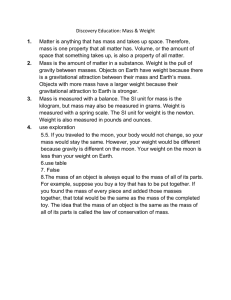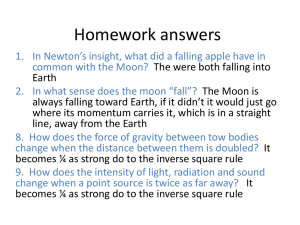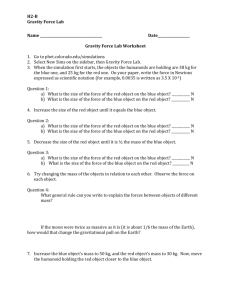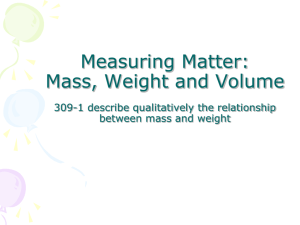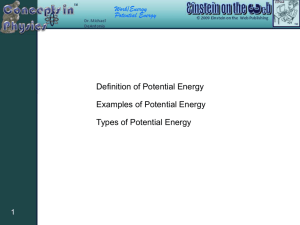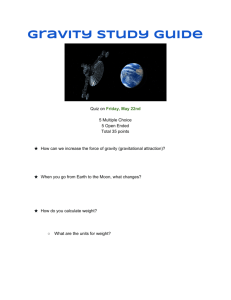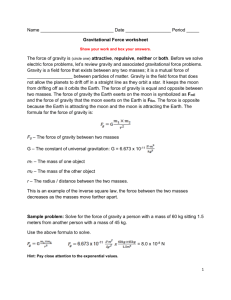I can explain how gravity affects orbital motion.
advertisement
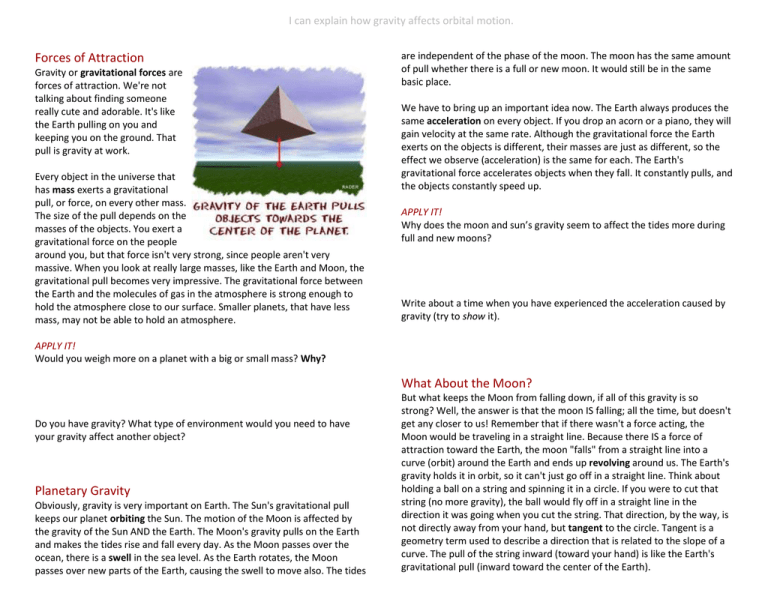
I can explain how gravity affects orbital motion. Forces of Attraction Gravity or gravitational forces are forces of attraction. We're not talking about finding someone really cute and adorable. It's like the Earth pulling on you and keeping you on the ground. That pull is gravity at work. Every object in the universe that has mass exerts a gravitational pull, or force, on every other mass. The size of the pull depends on the masses of the objects. You exert a gravitational force on the people around you, but that force isn't very strong, since people aren't very massive. When you look at really large masses, like the Earth and Moon, the gravitational pull becomes very impressive. The gravitational force between the Earth and the molecules of gas in the atmosphere is strong enough to hold the atmosphere close to our surface. Smaller planets, that have less mass, may not be able to hold an atmosphere. are independent of the phase of the moon. The moon has the same amount of pull whether there is a full or new moon. It would still be in the same basic place. We have to bring up an important idea now. The Earth always produces the same acceleration on every object. If you drop an acorn or a piano, they will gain velocity at the same rate. Although the gravitational force the Earth exerts on the objects is different, their masses are just as different, so the effect we observe (acceleration) is the same for each. The Earth's gravitational force accelerates objects when they fall. It constantly pulls, and the objects constantly speed up. APPLY IT! Why does the moon and sun’s gravity seem to affect the tides more during full and new moons? Write about a time when you have experienced the acceleration caused by gravity (try to show it). APPLY IT! Would you weigh more on a planet with a big or small mass? Why? What About the Moon? Do you have gravity? What type of environment would you need to have your gravity affect another object? Planetary Gravity Obviously, gravity is very important on Earth. The Sun's gravitational pull keeps our planet orbiting the Sun. The motion of the Moon is affected by the gravity of the Sun AND the Earth. The Moon's gravity pulls on the Earth and makes the tides rise and fall every day. As the Moon passes over the ocean, there is a swell in the sea level. As the Earth rotates, the Moon passes over new parts of the Earth, causing the swell to move also. The tides But what keeps the Moon from falling down, if all of this gravity is so strong? Well, the answer is that the moon IS falling; all the time, but doesn't get any closer to us! Remember that if there wasn't a force acting, the Moon would be traveling in a straight line. Because there IS a force of attraction toward the Earth, the moon "falls" from a straight line into a curve (orbit) around the Earth and ends up revolving around us. The Earth's gravity holds it in orbit, so it can't just go off in a straight line. Think about holding a ball on a string and spinning it in a circle. If you were to cut that string (no more gravity), the ball would fly off in a straight line in the direction it was going when you cut the string. That direction, by the way, is not directly away from your hand, but tangent to the circle. Tangent is a geometry term used to describe a direction that is related to the slope of a curve. The pull of the string inward (toward your hand) is like the Earth's gravitational pull (inward toward the center of the Earth). I can explain how gravity affects orbital motion. APPLY IT! Do you think the force that Earth’s gravity has on the moon is greater or less than the force of the moon’s motion forward, or do you think they are equal? Why? between the one object wanting to go forward and away and the other wanting to pull it in. Come up with another analogy that is similar to the one about spinning a ball around on a string. Describe it in words and sketch it out below. Source: http://www.physics4kids.com/files/motion_gravity.html, accessed 4/9/2014 These forces of inertia and gravity have to be perfectly balanced for an orbit to happen. If the forward movement (inertia) of one object is too strong, the object will speed past the other one and not enter orbit. If inertia or momentum is much weaker than the pull of gravity, the object will be pulled into the other one completely and crash. Source: http://www.qrg.northwestern.edu/projects/vss/docs/space-environment/1-whatcauses-an-orbit.html, date accessed 4/9/2014 What causes an orbit to happen? Orbits are the result of a perfect balance between the forward motion of a body in space, such as a planet or moon, and the pull of gravity on it from another body in space, such as a large planet or star. An object with a lot of mass goes forward and wants to keep going forward; however, the gravity of another body in space pulls it in. There is a continuous tug-of-war Try IT! Play with the following web apps on Mr. Mulloy’s webpage and answer the corresponding questions. I can explain how gravity affects orbital motion. 2. What happens to the orbit of the planet when you increase or decrease the magnitude of the velocity of the planet, but keep everything else constant? Why? 3. What happens to the planet's orbit when you increase or decrease the initial distance between the planet and the sun? Watch and Play with Gravity and Throwing 1. How much energy is needed to put something into orbit in everyday terms? Try Our Newton’s Cannon 1. What happens if too much forward motion is placed on an object? Why? 2. What happens if too little forward motion is placed on an object? Why? Gravity and Orbits 3. Describe the relationship between the movement of the Earth, Moon, and Sun. 4. How does gravity control the motion of the Earth and Moon? My Solar System 1. What happens when you increase or decrease the mass of the planet, but keep everything else constant? Why?
